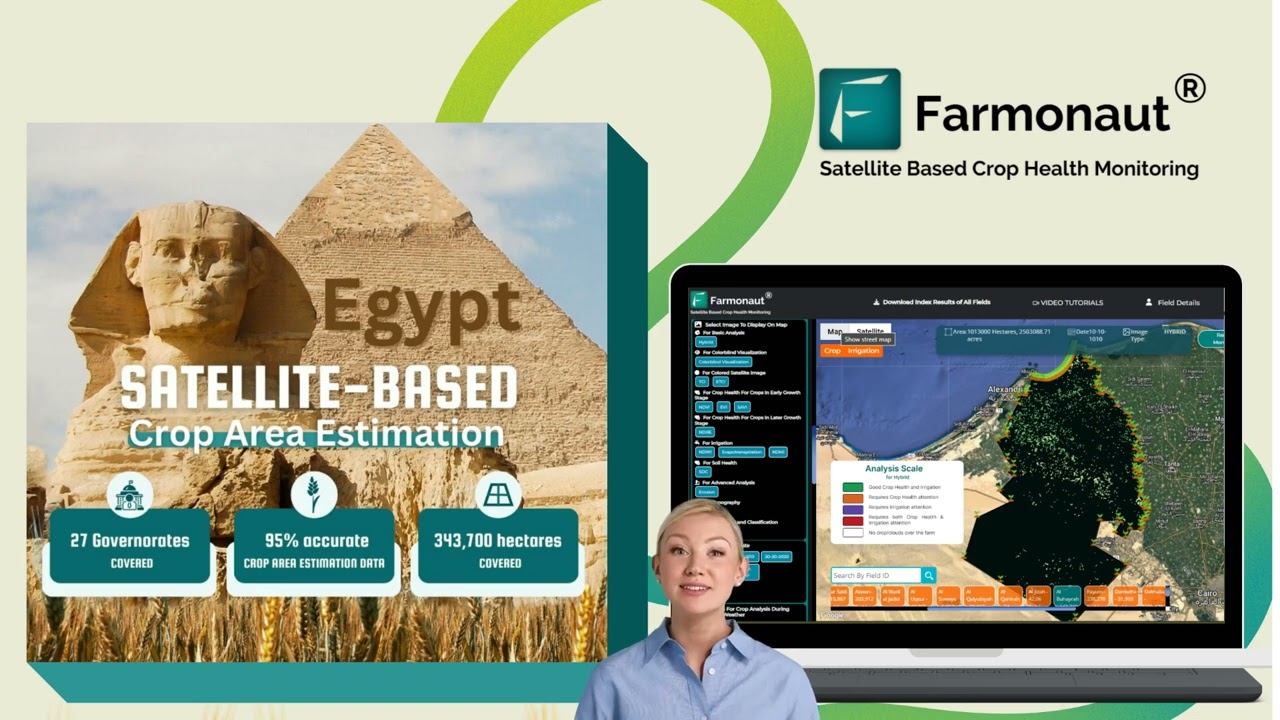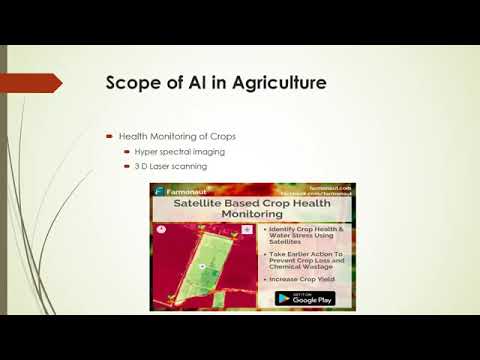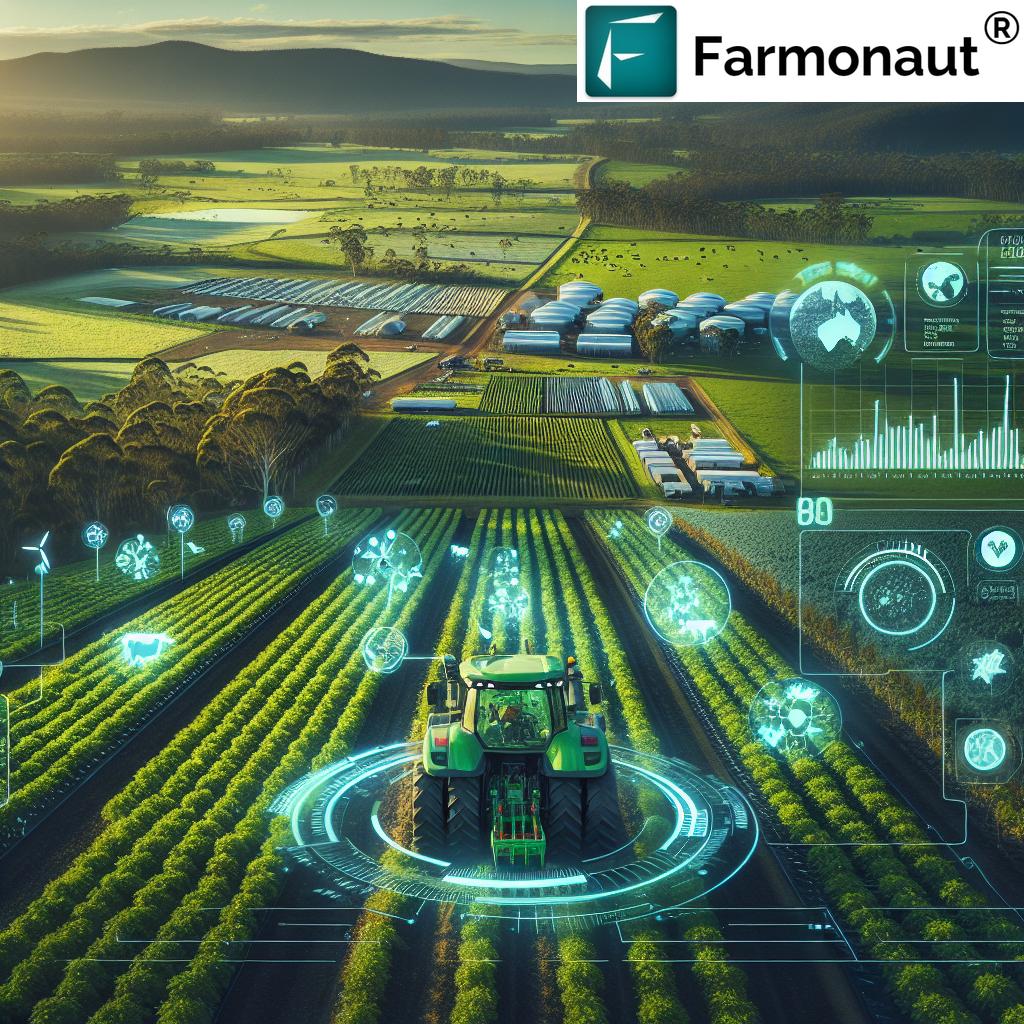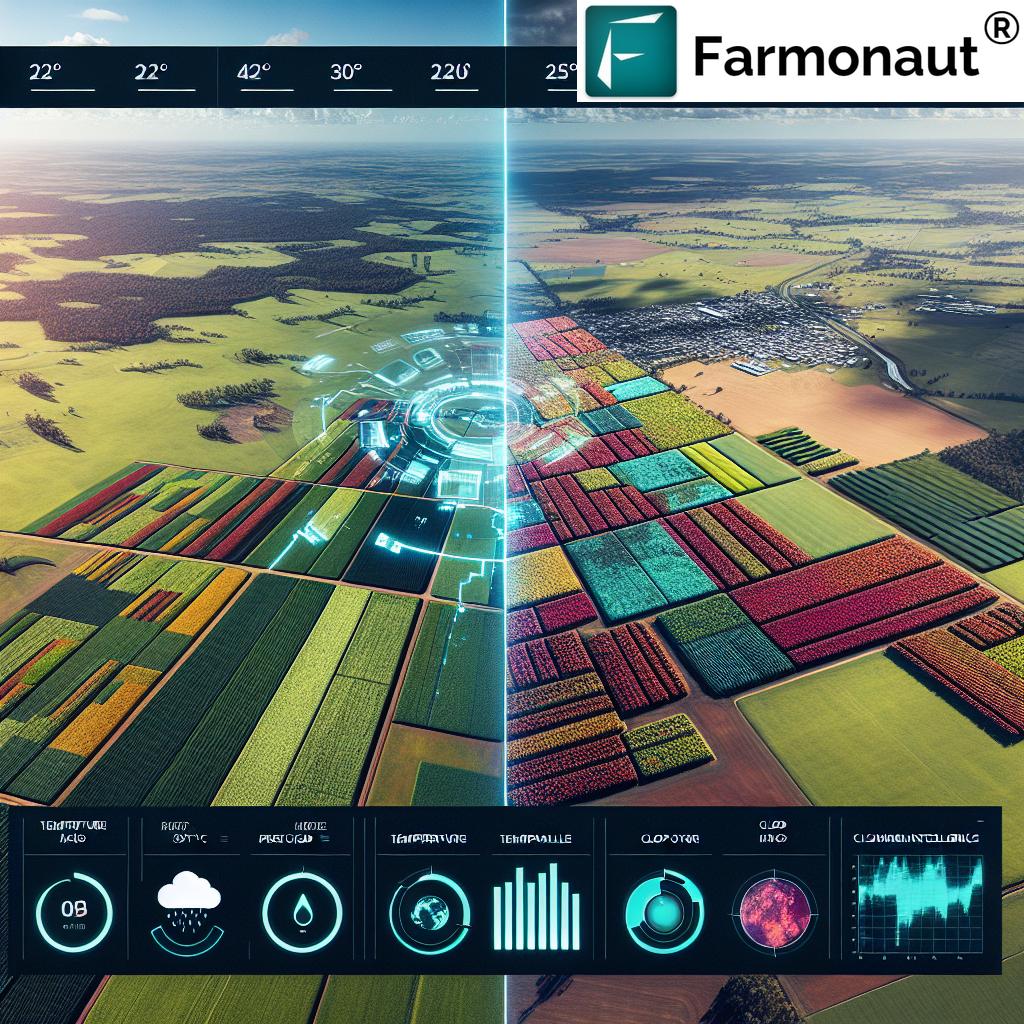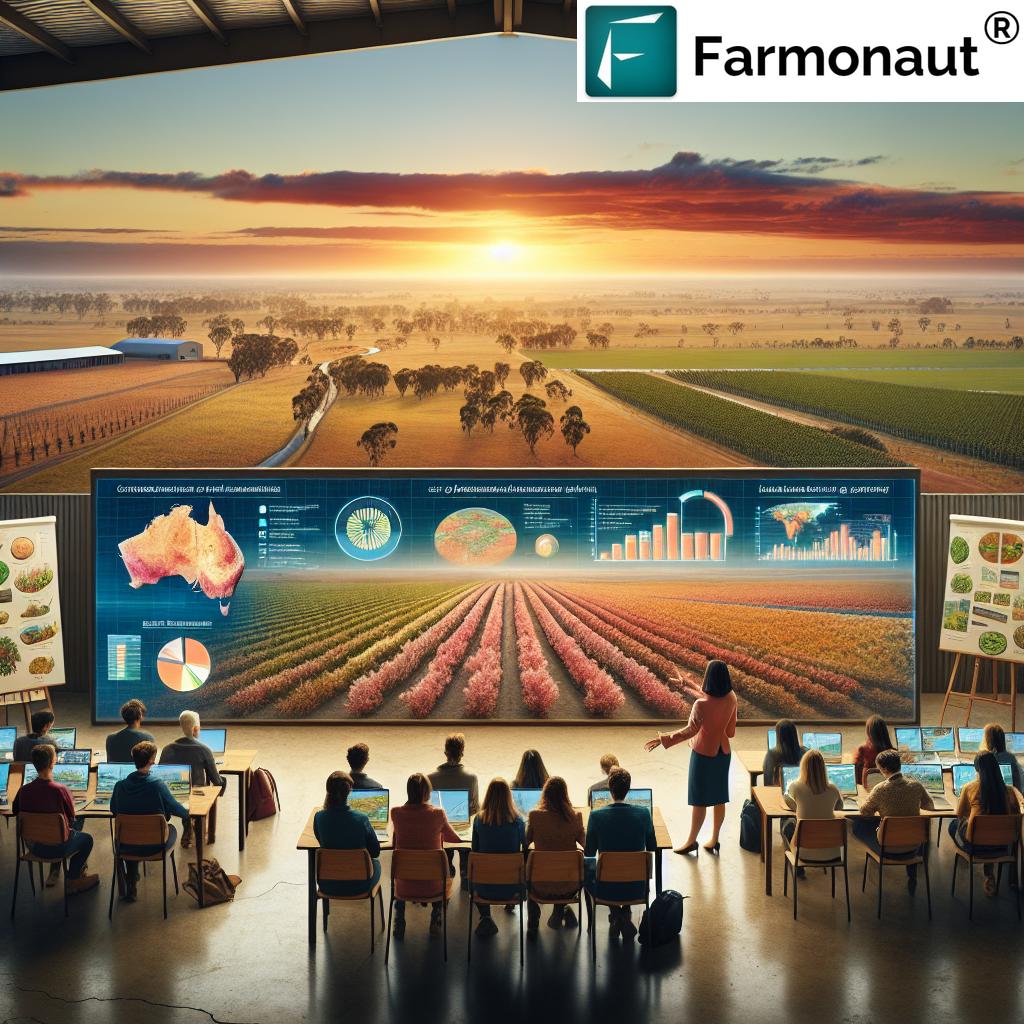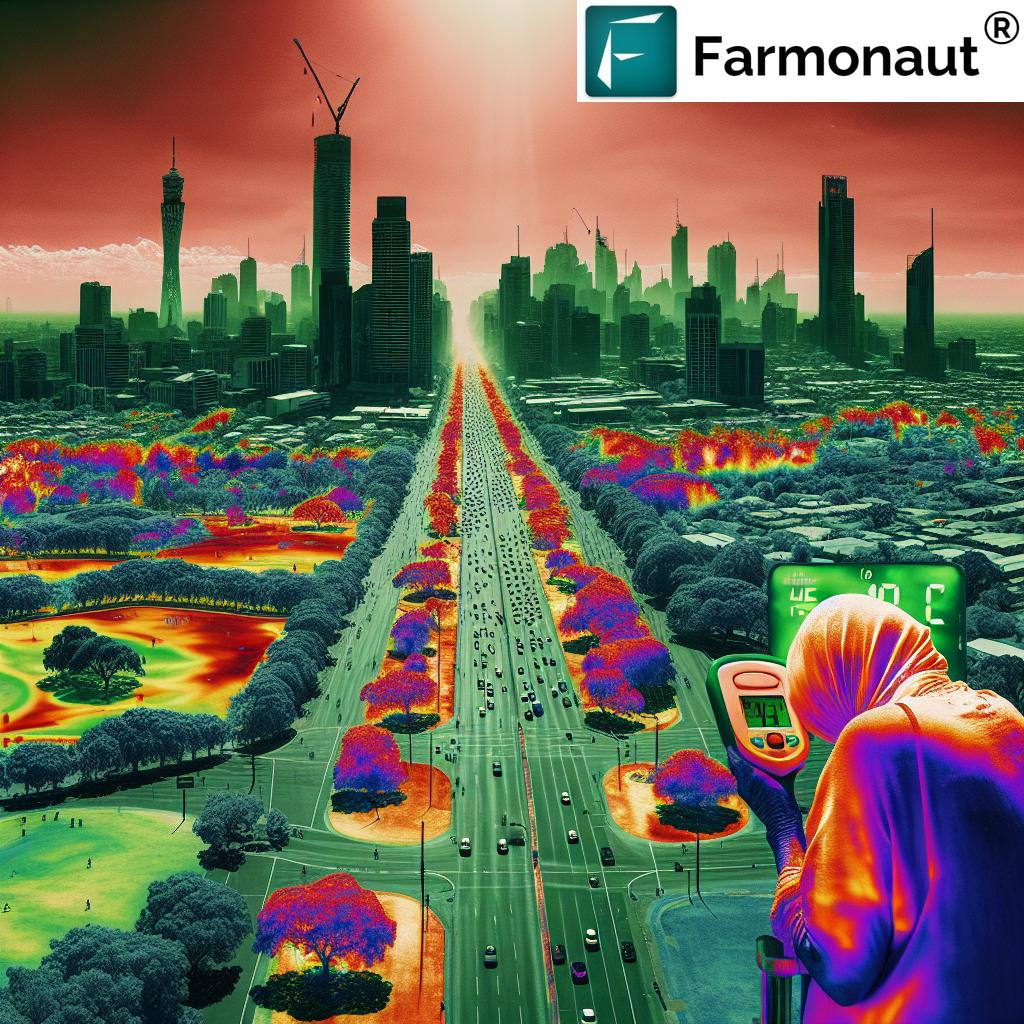Revolutionizing Australian Agriculture: Emerging Insect Industry Drives Sustainable Innovation and Growth
“Australia’s emerging insect industry is developing an RD&E plan to revolutionize agricultural innovation and waste management.”
In recent years, we’ve witnessed a remarkable shift in the landscape of Australian agriculture. As we navigate the challenges of the 21st century, a groundbreaking sector is emerging that promises to revolutionize our approach to sustainable agriculture solutions and waste management. The burgeoning insect industry in Australia is not just a fleeting trend; it’s a transformative force that’s reshaping our understanding of agricultural innovation and sustainable practices.
At Farmonaut, we’re excited to be at the forefront of these developments, leveraging our advanced satellite-based farm management solutions to support this innovative sector. Our mission to make precision agriculture accessible aligns perfectly with the goals of the emerging insect industry, and we’re eager to explore how our technologies can contribute to this revolution.
The Rise of Insect Farming in Australia
The Australian agricultural sector has long been known for its resilience and innovation. Now, with the development of a comprehensive Research, Development, and Extension (RD&E) plan for insect production, we’re witnessing the birth of an industry that could redefine sustainable farming practices. This plan is not just about introducing a new agricultural commodity; it’s about creating a whole new paradigm for addressing some of our most pressing environmental and economic challenges.
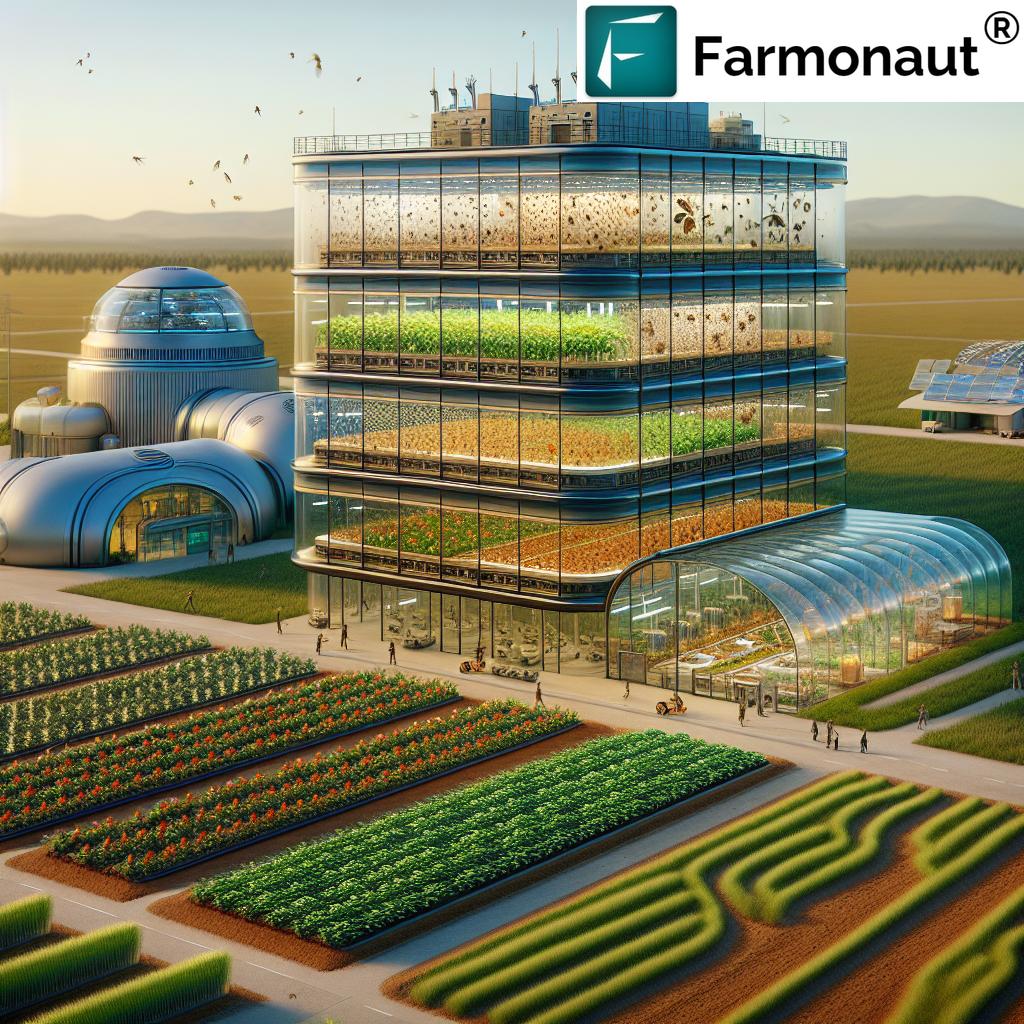
Insect farming for waste management is emerging as a key focus area. By harnessing the natural abilities of insects to process organic waste, we’re opening up new possibilities for organic waste upcycling. This not only addresses the growing challenge of waste management but also creates valuable by-products that can be used in various industries.
Sustainable Agriculture Solutions: The Insect Advantage
The development of insect-derived agricultural inputs is one of the most exciting aspects of this emerging industry. These inputs have the potential to enhance crop yields and improve soil health in ways that are both effective and environmentally friendly. As we at Farmonaut continue to provide real-time crop health monitoring through our satellite technology, we’re keenly interested in how these innovative inputs could further optimize farm productivity.
- Organic Fertilizers: Insect frass (excrement) is rich in nutrients and can be used as an organic fertilizer, reducing reliance on synthetic alternatives.
- Soil Amendments: Chitin from insect exoskeletons can improve soil structure and boost plant immunity.
- Animal Feed: Insect protein is a sustainable alternative to traditional feed sources, particularly in aquaculture and poultry farming.
These innovations align perfectly with our goal at Farmonaut to promote sustainable farming practices through data-driven insights and precision agriculture techniques.
Agricultural Innovation in Australia: A Collaborative Effort
The development of the insect industry in Australia is a testament to the power of collaboration between various stakeholders. Research institutions, government bodies, and private enterprises are coming together to drive this agricultural innovation forward. This collaborative approach is crucial for addressing the complex challenges associated with establishing a new industry.
Key initiatives include:
- Establishment of technology hubs focused on insect farming and processing
- Partnerships with leading research entities to study insect biology and optimize production methods
- Development of regulatory frameworks to ensure food safety and environmental protection
At Farmonaut, we understand the importance of such collaborations. Our AI-driven Jeevn advisory system, for instance, combines satellite data with expert knowledge to provide personalized farm management advice. We’re excited about the potential to integrate insights from the insect farming sector into our advisory services, further enhancing our ability to support sustainable agricultural practices.
Emerging Agritech Industries: The Role of Technology
The growth of the insect industry in Australia is intrinsically linked to advancements in agricultural technology. From automated rearing systems to precision feeding technologies, agritech is playing a crucial role in making insect farming economically viable and scalable.
At Farmonaut, we’re constantly innovating to provide cutting-edge solutions for modern agriculture. Our satellite-based crop health monitoring and AI-driven advisory systems are just a few examples of how technology can transform farming practices. As the insect industry grows, we anticipate exciting opportunities to adapt and expand our services to meet the unique needs of insect farmers.
Sustainable Crop Yield Enhancement: Insects as Allies
One of the most promising aspects of the emerging insect industry is its potential to contribute to sustainable crop yield enhancement. Insects can play multiple roles in improving agricultural productivity:
- Pollination: Many insect species are efficient pollinators, crucial for crops like almonds, apples, and berries.
- Pest Control: Predatory insects can be used as natural pest control agents, reducing the need for chemical pesticides.
- Soil Health: Certain insects contribute to soil aeration and nutrient cycling, improving overall soil quality.
These benefits align perfectly with Farmonaut’s mission to promote sustainable farming practices. Our satellite-based crop monitoring can help farmers track the impact of these insect-driven interventions on crop health and productivity.
Agricultural Waste Management Technologies: A Circular Approach
The insect industry is pioneering new approaches to agricultural waste management technologies. By utilizing insects to process organic waste, we’re moving towards a more circular economy in agriculture. This not only reduces waste but also creates valuable by-products:
- Bioconversion: Insects can convert low-value organic waste into high-value protein and lipids.
- Waste Reduction: Insect farming can significantly reduce the volume of agricultural waste that ends up in landfills.
- Value-Added Products: Insect-derived products from waste processing can be used in various industries, from agriculture to pharmaceuticals.
At Farmonaut, we’re excited about the potential of these waste management technologies to complement our existing solutions. Our carbon footprinting feature, for instance, could be expanded to help businesses track and optimize their waste management processes in this new circular economy.
“The insect farming sector in Australia is exploring high-value applications in energy, pharmaceuticals, and food, attracting significant investment.”
High-Value Applications: Beyond Agriculture
While the primary focus of the insect industry is on agricultural applications, its potential extends far beyond the farm. Researchers and entrepreneurs are exploring high-value applications in various sectors:
- Energy: Insect-derived fats can be used to produce biodiesel.
- Pharmaceuticals: Certain insect compounds show promise for medical applications, including antimicrobial properties.
- Food Industry: Insect protein is being explored as a sustainable alternative in food production.
These diverse applications highlight the versatility of the insect industry and its potential to contribute to multiple sectors of the Australian economy.
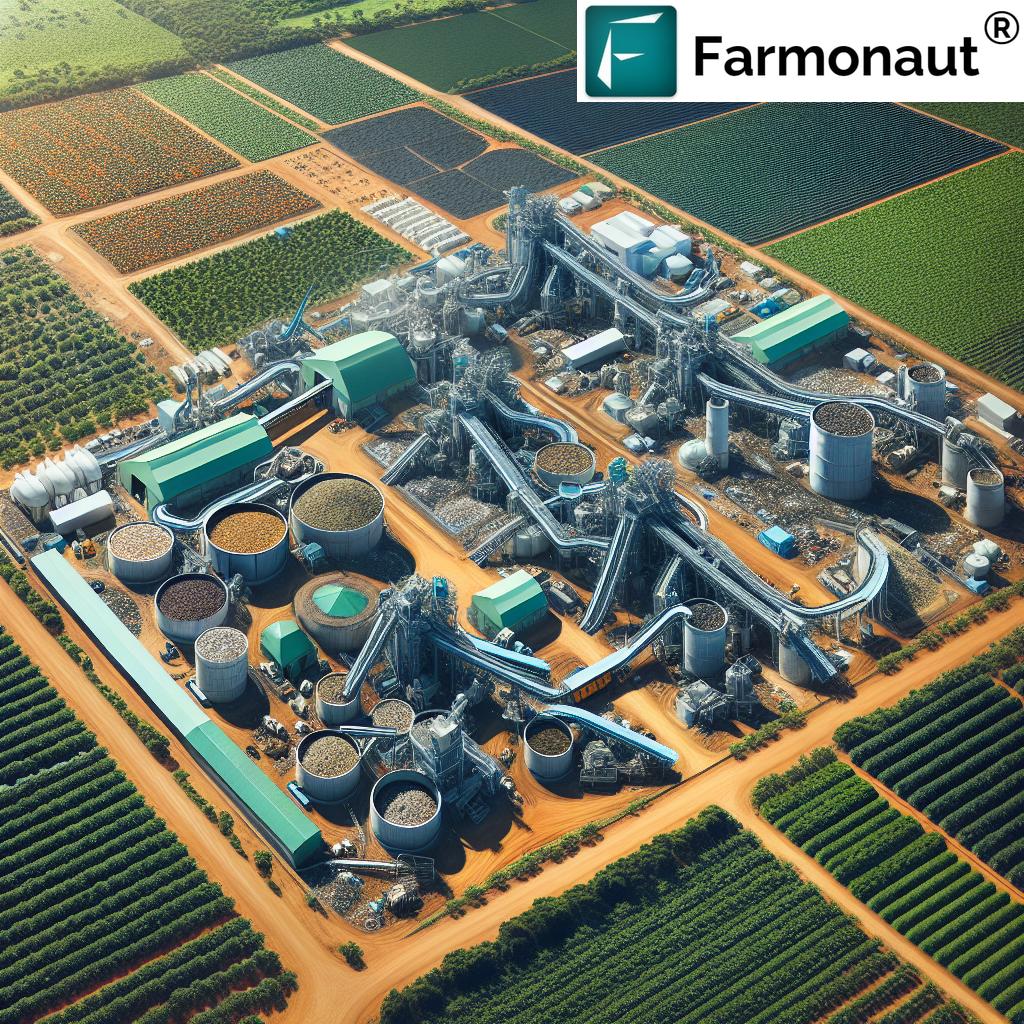
Investment and Growth: A Promising Future
The potential of the insect industry has not gone unnoticed by investors. We’re seeing increasing investment in insect farming startups, research programs, and technology development. This influx of capital is crucial for driving innovation and scaling up production to meet growing demand.
Key areas attracting investment include:
- Automated insect rearing systems
- Processing technologies for insect-derived products
- Research into new applications for insect-based materials
At Farmonaut, we understand the importance of investment in driving agricultural innovation. Our own journey in developing cutting-edge farm management solutions has been fueled by a commitment to innovation and sustainable growth.
Challenges and Opportunities
While the potential of the insect industry is enormous, it’s not without its challenges. Some of the key issues that need to be addressed include:
- Regulatory Frameworks: Developing appropriate regulations for insect farming and insect-derived products.
- Consumer Acceptance: Overcoming cultural barriers to the use of insects in food and feed.
- Scaling Production: Developing efficient, large-scale insect rearing and processing systems.
These challenges also present opportunities for innovation and growth. At Farmonaut, we’ve faced similar challenges in introducing new technologies to traditional farming practices. Our experience in overcoming these hurdles could provide valuable insights for the emerging insect industry.
Explore Farmonaut’s API for advanced agricultural data
The Role of Research and Development
The success of the Australian insect industry hinges on continued investment in research and development. The RD&E plan being developed is a crucial step in this direction. Key research priorities include:
- Optimizing insect rearing conditions for different species
- Developing new processing technologies for insect-derived products
- Studying the environmental impact of large-scale insect farming
- Exploring new applications for insect-derived materials in various industries
This focus on research aligns with Farmonaut’s commitment to data-driven agriculture. Our satellite-based crop monitoring and AI advisory systems are built on a foundation of continuous research and improvement, ensuring that we provide the most up-to-date and effective solutions to our users.
Workforce Development and Education
As the insect industry grows, there’s an increasing need for a skilled workforce to support its development. This presents exciting opportunities for rural communities and agricultural professionals. Key areas of focus include:
- Training programs for insect farming techniques
- Educational initiatives to raise awareness about the benefits of insect-derived products
- Professional development opportunities for existing agricultural workers to transition into the insect industry
At Farmonaut, we understand the importance of continuous learning in agriculture. Our platform is designed to be user-friendly, with built-in educational resources to help farmers make the most of our technology. We see similar opportunities for knowledge sharing and skill development in the emerging insect industry.
Export Potential and Global Markets
The Australian insect industry has significant export potential. As global demand for sustainable protein sources and organic fertilizers grows, Australian insect farmers are well-positioned to tap into international markets. Key export opportunities include:
- Insect protein for animal feed, particularly in aquaculture
- Organic fertilizers derived from insect frass
- High-value insect-derived compounds for pharmaceutical and industrial applications
This export potential aligns with Australia’s reputation for high-quality agricultural products. At Farmonaut, we’re excited about the possibility of supporting this new export industry through our advanced monitoring and traceability solutions.
Sustainability and Environmental Impact
One of the most compelling aspects of the insect industry is its potential to contribute to sustainability goals. Insect farming offers several environmental benefits:
- Lower Resource Requirements: Insects require less land, water, and feed compared to traditional livestock.
- Reduced Greenhouse Gas Emissions: Insect farming generally produces fewer greenhouse gases than conventional animal agriculture.
- Waste Reduction: By converting organic waste into valuable products, insect farming contributes to a circular economy.
These sustainability benefits align perfectly with Farmonaut’s mission to promote environmentally friendly farming practices. Our carbon footprinting feature, for instance, could be adapted to help insect farmers track and optimize their environmental impact.
The Future of Food Production
As we look to the future, the insect industry has the potential to play a significant role in addressing global food security challenges. With the world’s population expected to reach 9 billion by 2050, sustainable protein sources like insects could be crucial in meeting growing food demand.
Key areas of development include:
- Integration of insect protein into mainstream food products
- Development of insect-based feed for livestock and aquaculture
- Use of insects in vertical farming systems for urban food production
At Farmonaut, we’re committed to supporting the future of food production through our innovative technologies. Our satellite-based monitoring and AI advisory systems can help farmers optimize their production, whether they’re growing traditional crops or venturing into new areas like insect farming.
Key Developments in Australian Insect Industry
| Year | Development | Impact |
|---|---|---|
| 2020 | Initiation of RD&E plan development | Set foundation for structured industry growth |
| 2021 | Establishment of first technology hub | Accelerated research and innovation in insect farming |
| 2022 | Launch of insect-derived organic fertilizer | Introduced sustainable alternative to conventional fertilizers |
| 2023 | Collaboration with major research institutions | Enhanced scientific understanding and optimization of insect production |
| 2024 | Integration of AI in insect farming systems | Improved efficiency and scalability of production |
Conclusion: A Sustainable Future with Insects
The emerging insect industry in Australia represents a significant leap forward in sustainable agriculture solutions and agritech innovation. From addressing waste management challenges to providing novel sources of protein and organic fertilizers, insects are proving to be versatile allies in our quest for more sustainable and efficient agricultural practices.
At Farmonaut, we’re excited about the potential synergies between our advanced farm management solutions and the growing insect industry. Our satellite-based monitoring, AI-driven advisory systems, and blockchain traceability solutions can play a crucial role in supporting and optimizing insect farming operations.
As we look to the future, it’s clear that the insect industry will play an increasingly important role in shaping Australian agriculture. By embracing this innovative sector and continuing to invest in research and development, we can create a more sustainable, efficient, and resilient food production system for generations to come.
FAQ: Australian Insect Industry and Sustainable Agriculture
- Q: What is the main focus of Australia’s emerging insect industry?
A: The main focus is on developing sustainable agriculture solutions, including waste management, organic fertilizers, and alternative protein sources. - Q: How does insect farming contribute to waste management?
A: Insects can efficiently process organic waste, converting it into valuable by-products and reducing the volume of waste sent to landfills. - Q: What are some potential applications of insect-derived products?
A: Applications include organic fertilizers, animal feed, food ingredients, and potential use in pharmaceuticals and energy production. - Q: How does the insect industry align with sustainability goals?
A: Insect farming generally requires fewer resources and produces fewer greenhouse gases compared to traditional livestock farming, contributing to more sustainable food production. - Q: What role does technology play in the development of the insect industry?
A: Technology is crucial for optimizing insect rearing, processing, and product development. This includes AI-driven systems, automated farming technologies, and advanced monitoring solutions.




